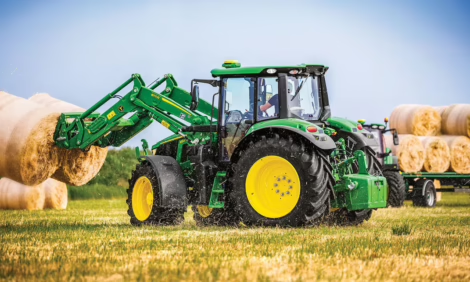



FDA Approves Camelina Meal for Cattle Feed
US - The Food and Drug Administration (FDA) has approved the inclusion of omega 3-rich Camelina meal in cattle feed. Under the guidelines, the FDA says that up 10 per cent of Camelina in cattle feed is satisfactory, providing the potential for omega 3-rich beef for consumer consumption.There are 10.5 million head of cattle in the US and Canada, opening an enormous new market for Camelina. As the world's largest supplier of Camelina meal and oil for biofuel, only Great Plains Oil and Exploration - The Camelina Company is capable of supplying significant commercial quantities of omega 3-rich Camelina meal to cattle growers.
"Our investment in research and our large-scale production capacity have allowed us to bring Camelina meal into the market at a sustainable level for beef producers," said Great Plains CEO Sam Huttenbauer. "We have provided more than seven million pounds of Camelina meal to the broiler chicken market. Great Plains will continue the expansion of Camelina's use as a major component of livestock feed."
While high in protein and vitamin E, Camelina meal also is a great source for omega 3 fatty acids and energy. The combination of these attributes is beneficial in healthy weight gain for the cattle.
Camelina meal is in the diet of millions of chickens already. According to one Great Plains customer, "Over the last two seasons we have seen an increase in our chicken's weight since switching to Camelina meal produced by Great Plains."
Previous studies have led to the belief that meat from chickens fed omega 3-enriched meals contain omega 3 fatty acids, resulting in healthier meat for human consumption. Because of the health benefits Camelina meal provides, Great Plains believes that cattle fed Camelina meal can be marketed as a premium branded product.
Great Plains, a renewable fuels company founded with the purpose of manufacturing and marketing biofuel produced from Camelina, has been working with the FDA to gain approval for the crop to be used as livestock feed for several years. The company has also just completed work with a major agricultural university on an evaluation of Camelina meal as a feed component for egg laying hens.
Great Plains, which has been researching, growing, and improving Camelina for more than a decade, recently announced that 2009 has been a year of explosive growth. The company's contract growing has expanded more than 200 per cent this year. This growth will solidify Great Plains' leadership position in supplying Camelina for biofuel and livestock feed.
"This has already been a tremendous year for Camelina," added Mr Huttenbauer. "Expansion of Camelina's use in biofuel and livestock feed will continue to show what an amazing crop this is."
TheCattleSite News Desk


